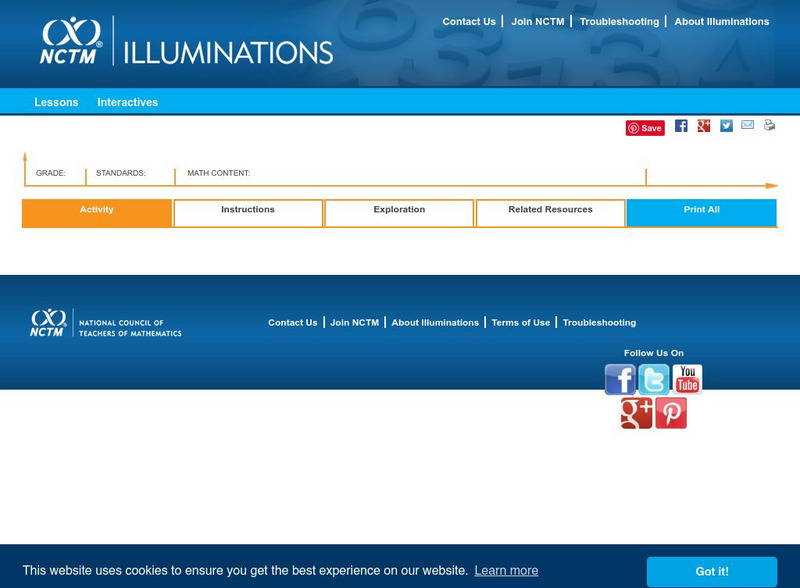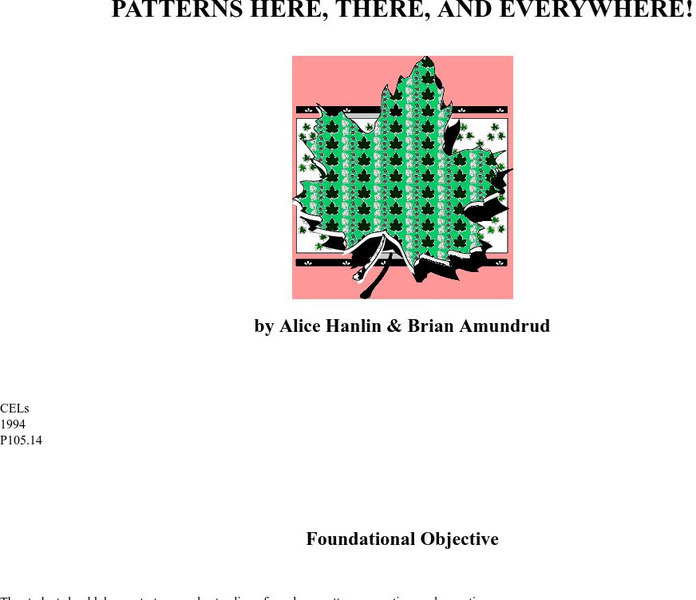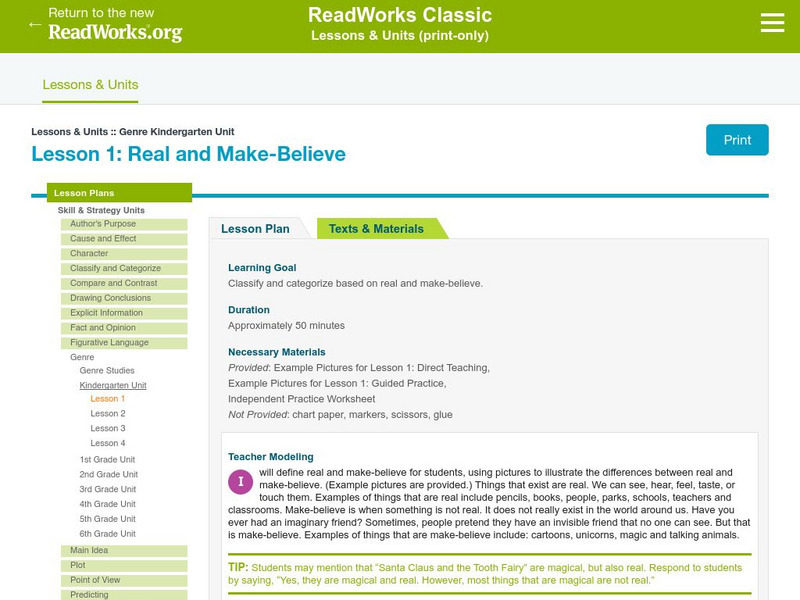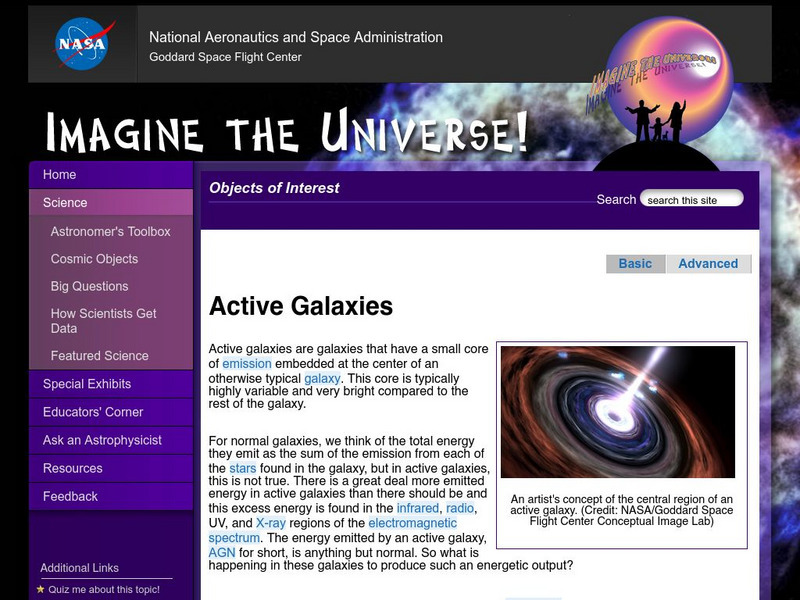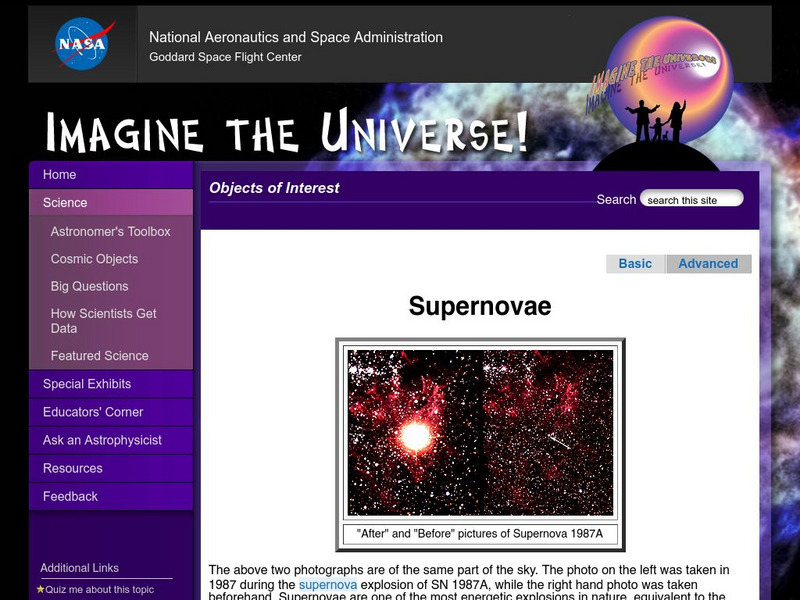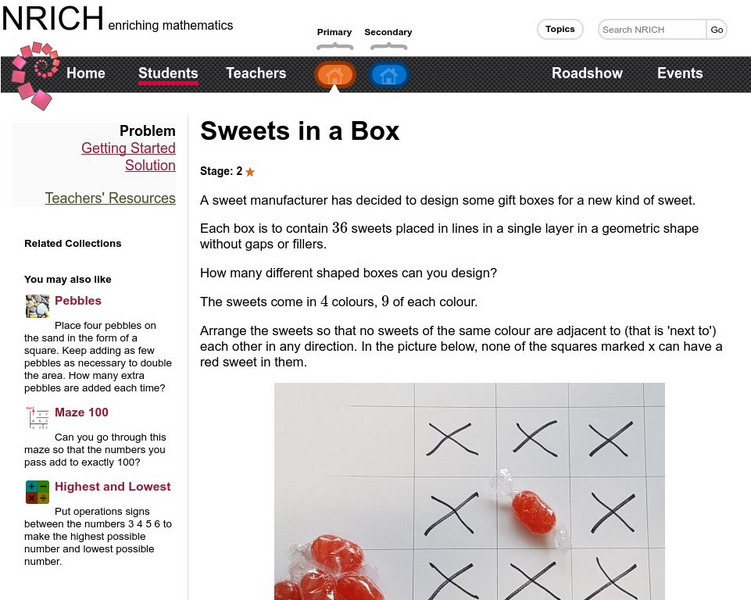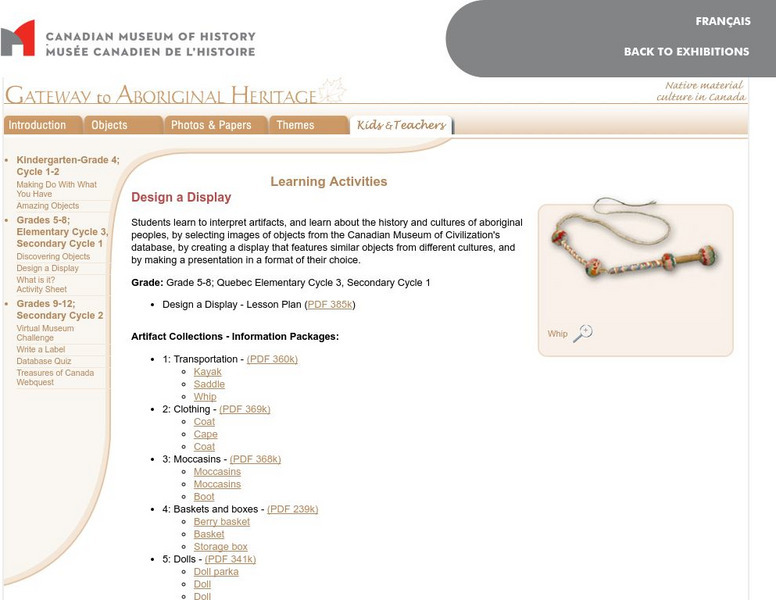Hi, what do you want to do?
PBS
Pbs Learning Media: Pre K 12 Resources for New School Routines: Creative Problem Solving Bingo: Pre K and K
These weekly activities are cross-curricular but emphasize Social-Emotional Learning, Math, and Literacy development. This week (January 4th), we are working on problem-solving.m
PBS
Pbs Mathline Lesson: Geometry, It's a Perfect Fit [Pdf]
This two-part geometry lesson plan has learners identify, describe, and classify two-dimensional shapes. Students engage in hands-on activities including identifying shapes in the classroom, creating patterns with shapes, identifying...
Other
My Science Box: Is It Alive?
A lesson plan that introduces middle schoolers to the concept of classifying objects as either living or non-living. From this lesson, students begin to think about the necessary characteristics of life.
Other
My Science Box: Raising Plants
The objective of this lesson is to study the life cycle and structure of plants. Students learn about the concept of classifying objects as either living or non-living by growing plants from seeds, fertilizing them, collecting seed, then...
Alabama Learning Exchange
Alex: Sense Suspense
In this language development lesson, Kindergarten ELLs learn the five senses, classify objects using the five senses, and create an ABC book modeled after Bruce McMillan's Sense Suspense in which they demonstrate their learning.
National Council of Teachers of Mathematics
Nctm: Illuminations: Cutting Corners
Students will use their knowledge of plane figure attributes to create and view shapes by cutting and rotating shapes to stimulate discussions on names and attributes of various shapes they do not regularly encounter.
University of Regina (Canada)
Univeristy of Regina: Math Central: Patterns Here, There, and Everywhere
This lesson plan on early patterning is well written, well planned, and extensive. The math content is substantial for this age. There are lots of connections to other content areas. Materials needed are readily available or provided for...
ABCya
Ab Cya: States of Matter
States of Matter is an educational activity for kids to learn about the different properties of matter. The lesson will introduce solids, liquids, and gases. Students will then be assessed through a sorting activity where they will...
Alabama Learning Exchange
Alex: It's in the Bag
This lesson is a unique and fun way to review perimeter, angles, and types of adjectives. Students pick an object from the classroom that will fit in a paper lunch bag. They investigate their object and fill in the attached sheet. You...
Alabama Learning Exchange
Alex: "Polly"gon Pockets
Lesson plan that helps students explore the attributes of polygons through the use of cooperative groups. Students use jigsaw puzzles and foldable polygons. They also connect the attributes of specific polygons with objects in the real...
Other
Sorico: Describing and Comparing Measurable Attributes
The following unit can be used to teach measurable attributes. Students will describe and compare two objects with a measurable concept in common using direct comparison. Included are necessary vocabulary, a scavenger hunt, and links to...
Science Education Resource Center at Carleton College
Serc: Magnets: What "Sticks"
While working in small groups, students will learn about magnetism by exploring what does and does not "stick" to a manget. Students will learn that only objects made of metal stick to magnets but not all objects made of metal stick.
Other
Pre K Pages: Sorting Activities for Preschool
This article contains activities and ideas for teaching sorting skills in preschool, pre-k, or kindergarten classrooms. Teach children to sort using various attributes.
Alabama Learning Exchange
Alex: Angles in the Mix
In this activity, students explore straight, acute, and obtuse angles in artwork. Then students will use digital cameras to take pictures of objects in their environment that demonstrate these types of angles. Students will use these...
PBS
Pbs: Count on It!: Blossom and Snappy Go to the Post Office
Blossom and Snappy help Digit mail a surprise package to Robbie. They visit the post office and postal processing plant to see how it all works.
Michigan Reach Out
Reach Out Michigan: Being Alive
This site provides a basic lesson plan that classifies objects as alive or not alive. Good for early elementary.
Read Works
Read Works: Genre Kindergarten Unit: Real and Make Believe
[Free Registration/Login Required] A lesson plan where young scholars learn the difference between real and make-believe and practice sorting details into the two categories. Ideas for direct teaching, guided practice, and independent...
NASA
Nasa: Imagine the Universe: Active Galaxies and Quasars
Describes quasars as being classified within the category of an active galaxy. A description of the emergence of high-energy. Definitions of key words are provided.gamma-ray quasars as an important component of the gamma-ray sky.
NASA
Nasa: Imagine the Universe: Supernovae (Advanced)
Supernovae are divided into two basic physical types, including a description of supernova types and how they are classified based on the existence of hydrogen spectral lines. Definitions of key terms are provided.
Other
Ohio Resource Center: Shadows
This applet helps pupils visualize the shapes of shadows cast by a cube with a light coming from different angles. This helps students visualize shapes from different angles and to identify, sketch and classify the cross-sections of...
University of Cambridge
University of Cambridge: Nrich: Sweets in a Box
Improve logic and pattern creation skills performing this game. Includes solution.
The British Museum
British Museum: Online Tours: Enlightenment: Art and Culture
Online tour of objects in the museum's galleries explains attempts by eighteenth-century scholars to classify art according to Enlightenment ideas and ideals.
Other
Cmh: Gateway to Aboriginal Heritage: Design a Display
Students compare and contrast similar objects from different cultures using images from the Museum of Civilization. Interpreting and classifying the items will challenge students' higher order thinking skills.
Center for Educational Technologies
Wheeling Jesuit University: How Are Things Divided Among Earth's Four Spheres?
See if you can classify various objects in the categories of land, water, air or living thing. This activity is interactive and you will receive a score for your performance.







